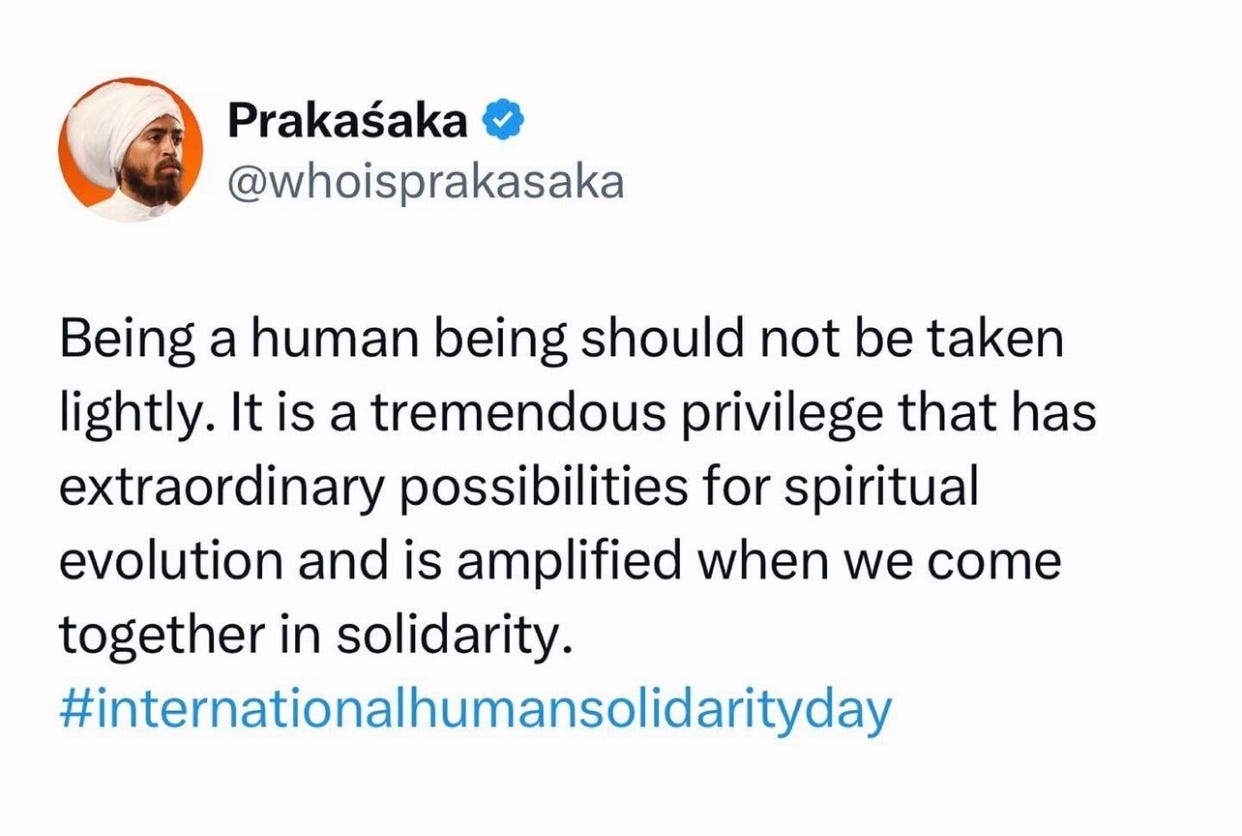Hello dear reader! Thank you for being here and taking the time to read my work.
When reflecting on my time in Dubai, my thoughts immediately turn to the dazzling high-rise buildings that lit up the night, the bustling crowds, the punctual metro train, and of course, the diverse and dynamic blend of people at COP28. I am astonished and grateful that, so early in my climate justice activism journey, I could attend and experience a conference of this magnitude. When many individuals, focused on a common purpose, come together, magic happens. My only regret is that, due to the vast venue, I left with a sense of emptiness, knowing I hadn't explored everything COP28 had to offer. However, I found comfort in the reality that, although I'd never got it all done, I'd didn’t get it wrong either.

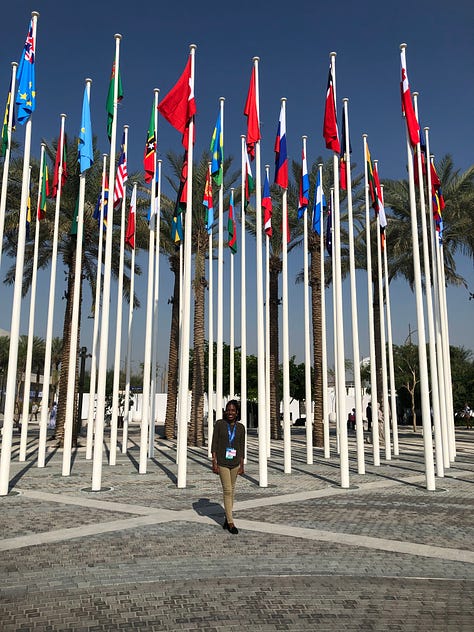

I relished the joy of finding myself in the right place at the right time and interacting with the right people. I vividly recall a journey on the metro when I overheard a conversation between two intelligent youths discussing the role that animal rights played in COP28 and how climate health affected animal health, and in turn, human health. Another memorable moment was when I assisted a parliamentary representative from Zimbabwe in rehearsing her speech for the negotiation sessions. I deeply treasure the nuggets of wisdom from fleeting strangers, united by the blue conference badge we wore around our necks.
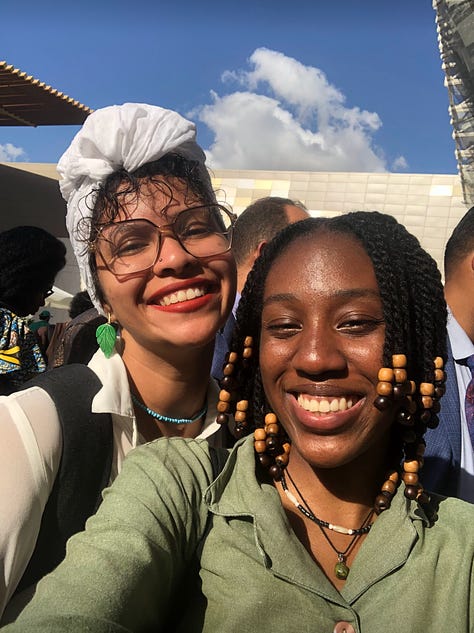
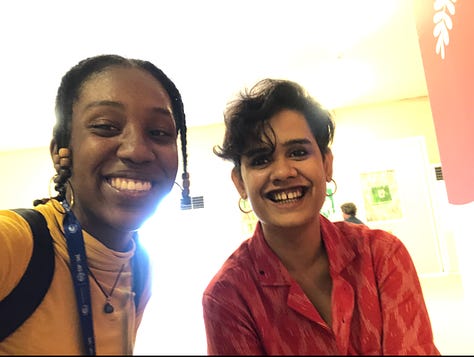
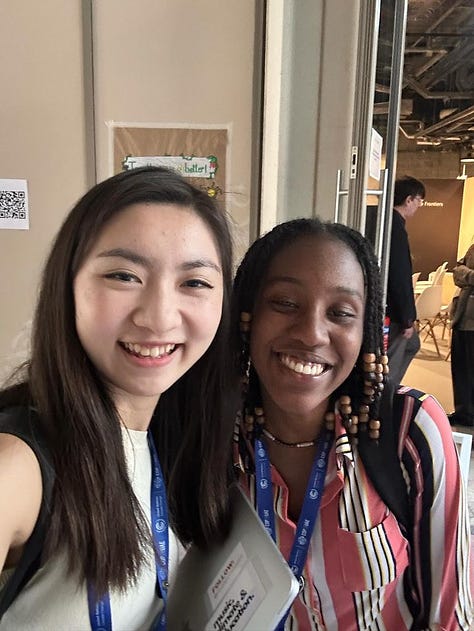

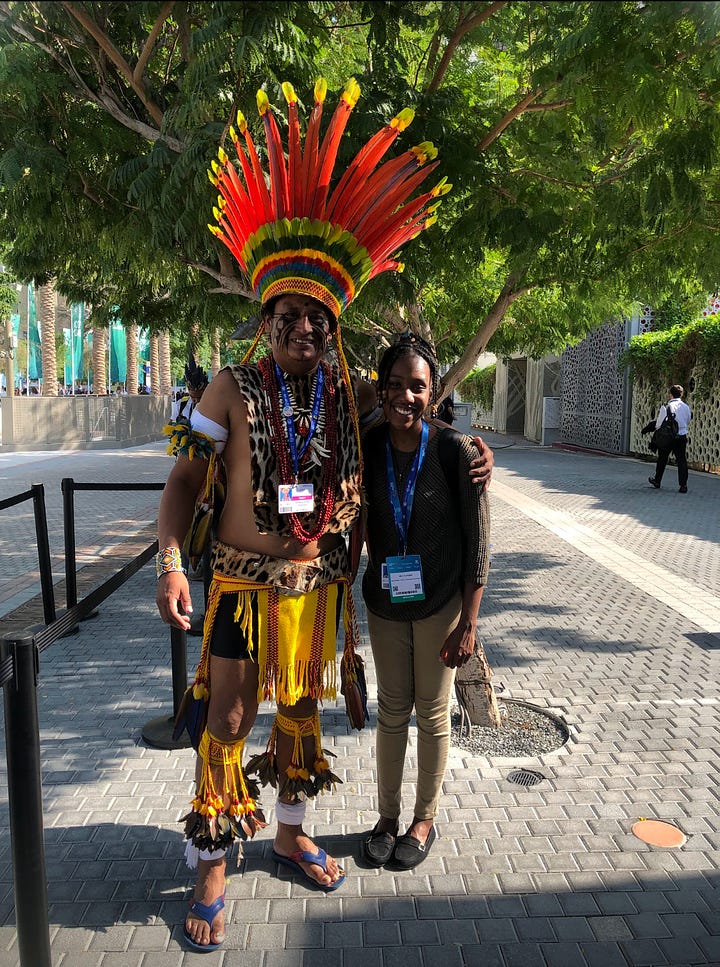
How do you set an agenda for an event so big? Navigating new experiences with a team helps, and it's even better with a family. Despite being 8 hours away from home, I found family at COP28 with the Caribbean Justice Leaders Academy cohort. Selected from a group of 35 Caribbean justice leaders from around the region, we form a powerful system of regional unity at COP28. Over the two weeks, these connections swiftly but tenderly grew as we navigated our on-site learning experience at COP and supported each other. This family only expanded as, in true Caribbean fashion, we gravitated towards other attendees from the Caribbean region. It's a wonder why we didn't arrive as one unified body in the first place. This was no novel idea, as the Moana Blue Pacific delegation expertly demonstrated, representing the Pacific Islanders under one umbrella. Indeed, there is strength in unity—what a statement and presence they had at COP. A Caribbean pavilion is a conversation for COP29.
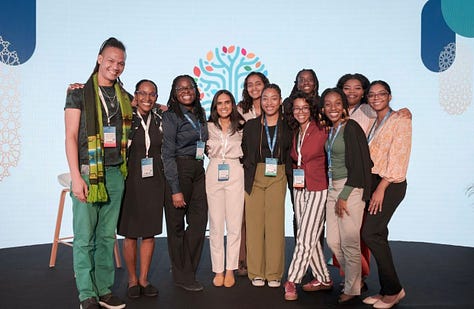
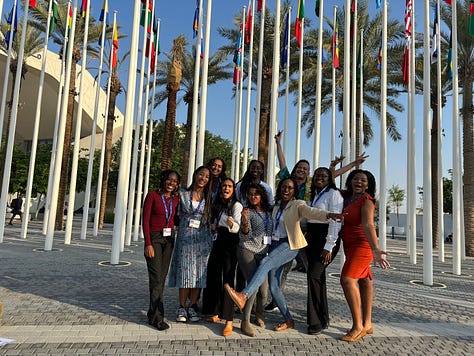

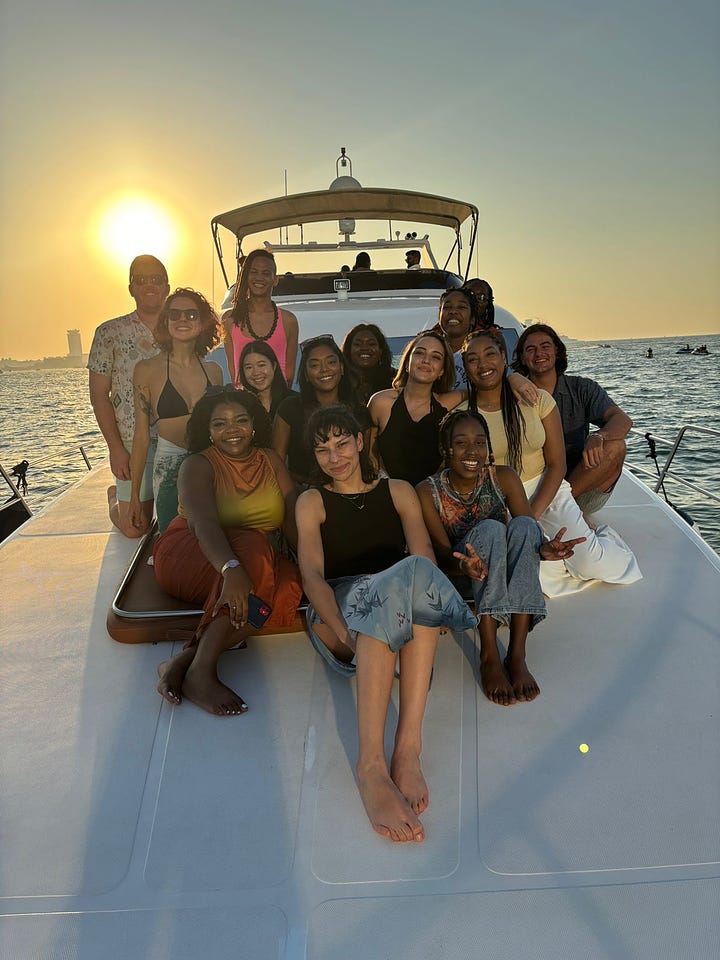
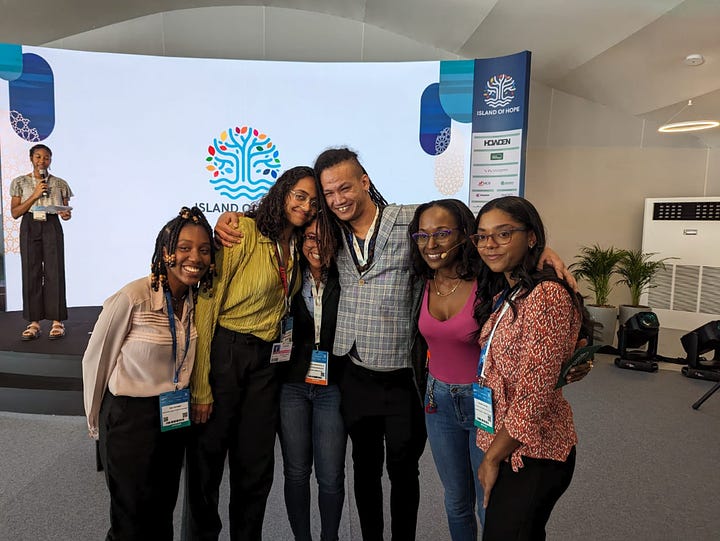

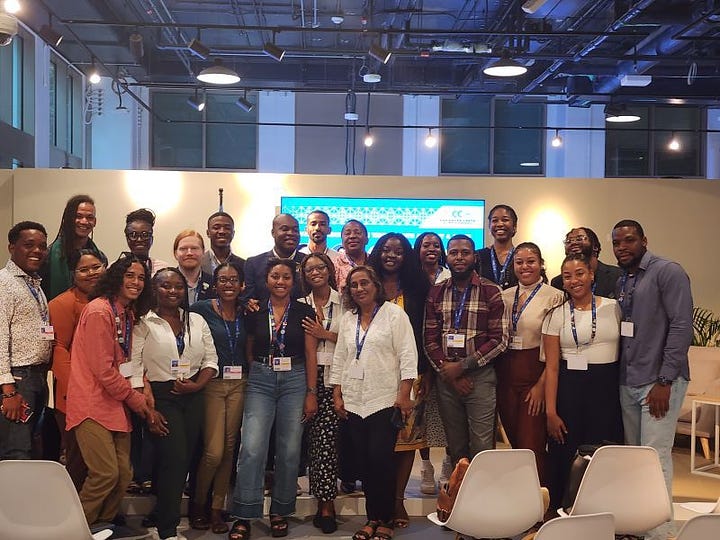
This environment invoked a metamorphosis within me. I filled my schedule with activities, events, workshops, and networking sessions, and engaged with key experts in the global arena on topics such as climate justice, ocean protection, loss and damage, a youth movement for climate justice, and fossil fuel phase-out. My speaking panel engagements included:
Island Voices at COP28 - Youth Perspectives on Climate Justice for Small Island Developing States
Future Leaders - Inspiring Hope for Tomorrow1
Interregional Dialogues for Large Ocean States - Youth Voices on Climate Justice23
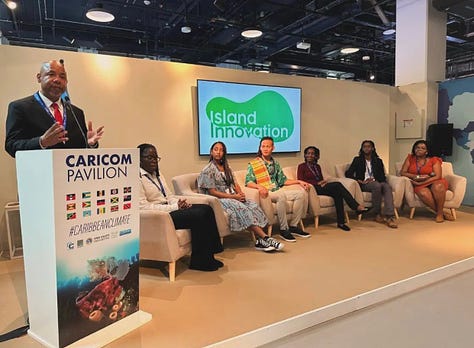
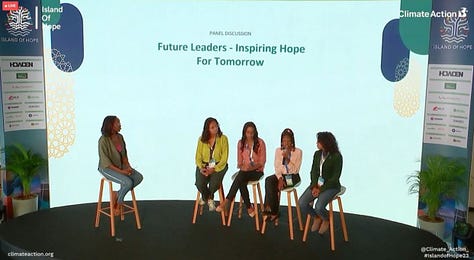
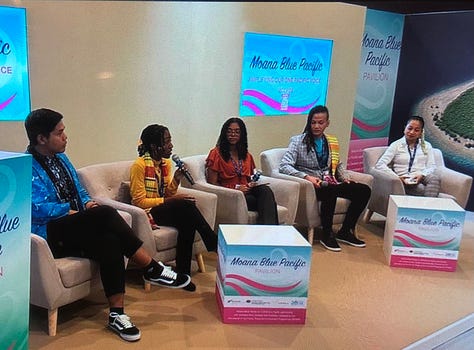
As a creative, I had the opportunity to flex my graphic design muscles and create resources for the Antigua and Barbuda delegation attending COP28. This included spotlights for the delegation, flyers for upcoming events at the Antigua and Barbuda Pavilion, as well as infographics to communicate developments at COP28 in accessible ways to the general public. For instance, I highlighted the adoption of the loss and damage fund and illustrated how it benefited Antigua and Barbuda. I am very grateful that they took me under their wing, providing a support network that felt like another branch in the family tree at COP28.
I found myself spontaneously trying new things, just for the fun of it. One such experience was interviewing Rachel Ojo, the head of the UK youth delegation at COP28. In our conversation, we discussed leveraging education to empower youth leaders, enabling them to be well-informed decision-makers and custodians of our future4. COP28 has been an invaluable platform, allowing me to use my voice to grow and learn from others.
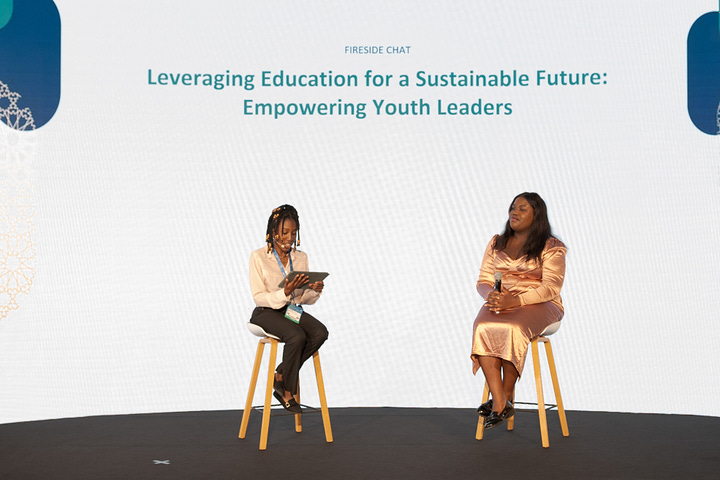
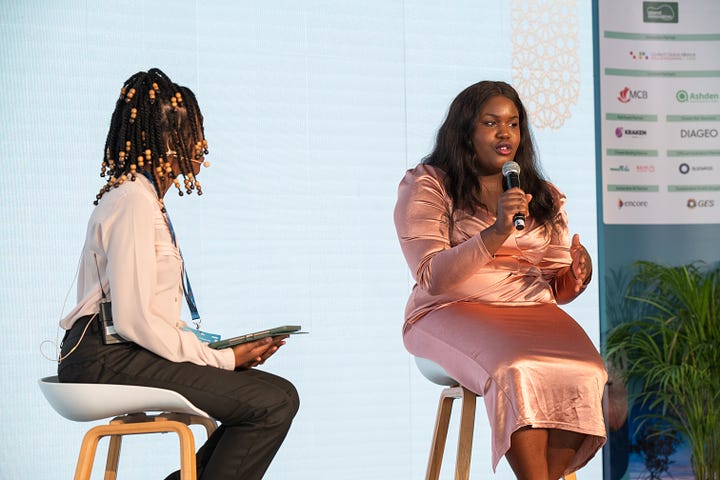
One aspect of COP28 that blew my mind was the energetic presence of young people—it was arguably the largest gathering of youth this event had ever seen. And they deserved to be there. Intelligent, focused, and passionate, they brought creative solutions to the table. One activity, in particular, left me invigorated and inspired: a reception held by the Pacific Islands Students Fighting for Climate Change and the World's Youth for Climate Justice. During this event, I learned about the campaign for an ICJ Advisory Opinion on Climate Change, initiated by classroom conversations in 2019 at the University of the South Pacific. Backed by the Vanuatu government, it took off as a successful and global campaign. This experience had me contemplating two things: the power of youth voices and the strength of intergenerational collaboration. I was inspired to take action where I stand, utilizing the resources I possess, and understanding that every voice for the cause contributes to its success. As young people, we can share our ideas and collaborate with the older generation to develop more creative responses to the climate crisis. This ensures that our efforts more appropriately respond to varied needs within and across generations.
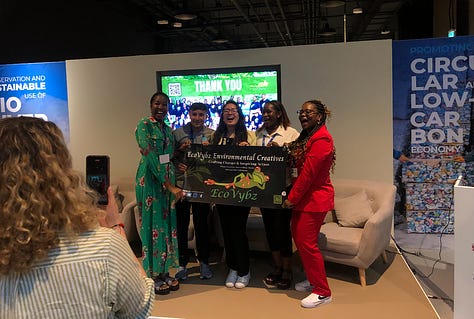

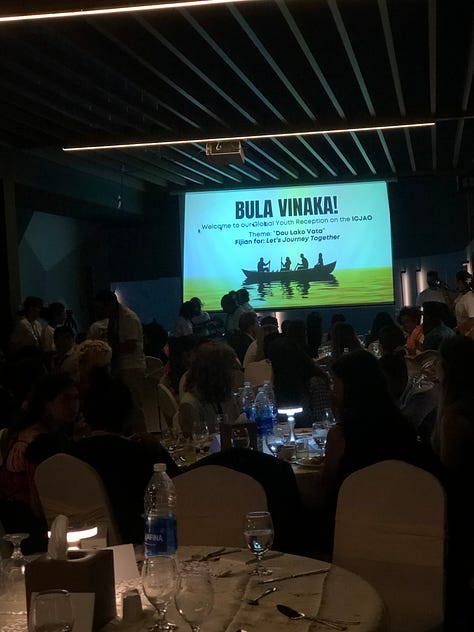
But COP28 wasn't all long documents and meetings. I must say, I was pleasantly surprised by the holistic and fun approach that allowed us the freedom to express ourselves. For instance, the Green Zone of the conference was a hub of innovative, creative, and educational events for the public. In particular, I enjoyed the Terra pavilion, which housed games and an immersive museum experience that prompted me to reflect on my relationship with nature, rekindling an adoration for our beautiful green and blue planet.
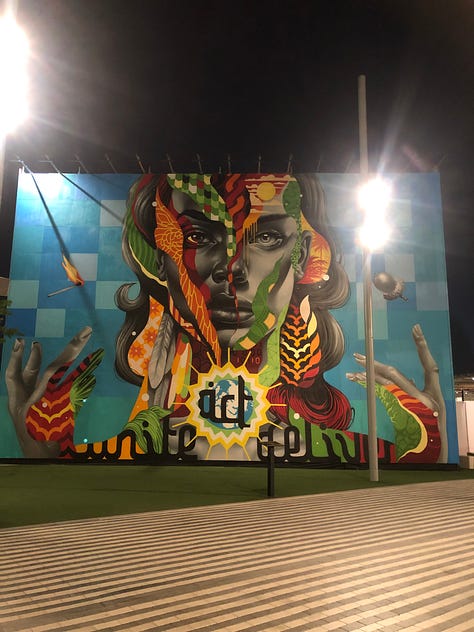
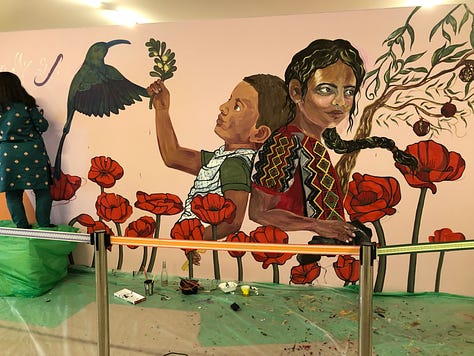
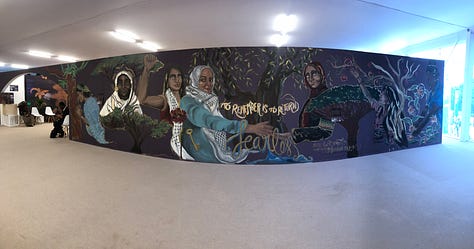
Under Al Wasl Plaza, I enjoyed a futuristic fashion show featuring designers reimagining what fashion looks like, creating captivating pieces from recycled and sustainably sourced materials. At the enchanting 'Night for the Ocean,' I immersed myself in the wisdom of indigenous elders, surrounded by the ethereal melodies of whale songs and the enchanting performances of music and poetry.
I often sought relaxation in the Resilient Frontiers Pavilion, where I recharged my creative spirit. From analyzing nature-conscious films accompanied by live violin performances to examining the Japanese garden ecosystem to hopeful haikus about our future, I left each session feeling energized and with a strengthened belief that humans are resilient and that we have what it takes to tackle the climate crisis when we band together.
Listening and conversing with Anemone Birkebæk, Director of Partnerships at the Museum for the United Nations - UN Live, underscored the importance of our global voice. Doubling down on storytelling, popular culture, and empathetic connections – to make climate action hopeful, relevant, actionable – even joyful. Broadening the conversation to include a diverse range of perspectives and fostering a greater sense of global belonging is a powerful means of activism, and I am grateful that I rendezvoused with others who share and acknowledge that perspective as well.
Of course, COP28 wasn't all work and no play. There was a time in between to rest and explore the city and its culture. I rode a camel, sandboarded, dune dashed, indulged in delicious Emirati dishes, shopped at souks, conversed with the locals, and enjoyed the futuristic scenery of Dubai on a sunset cruise. Though I must admit, after spending time in the desert, I now have an even greater appreciation for my tropical island home and rainy England.
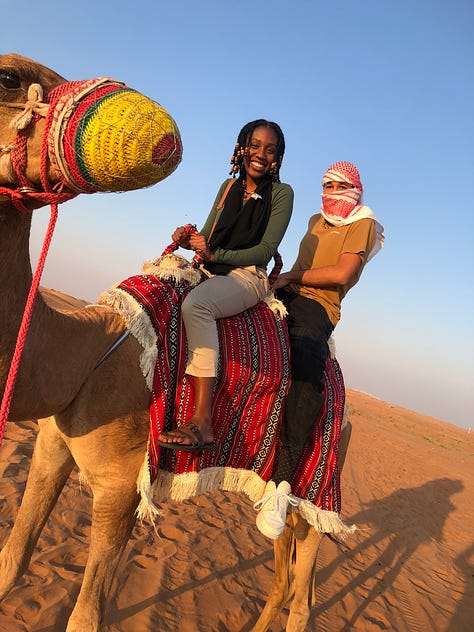
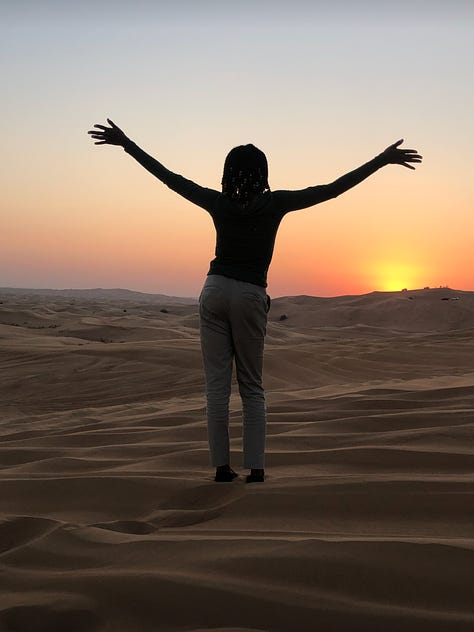
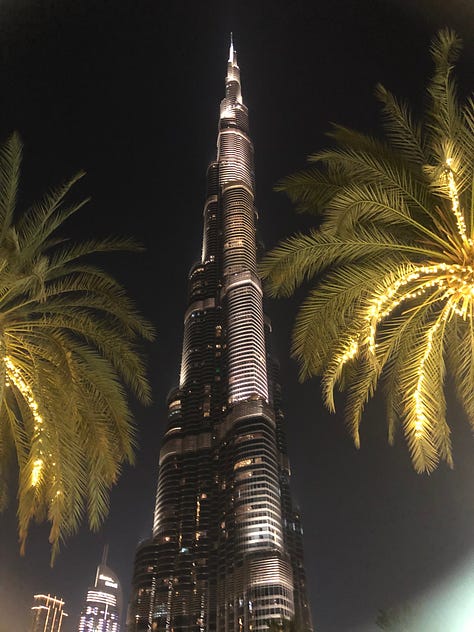
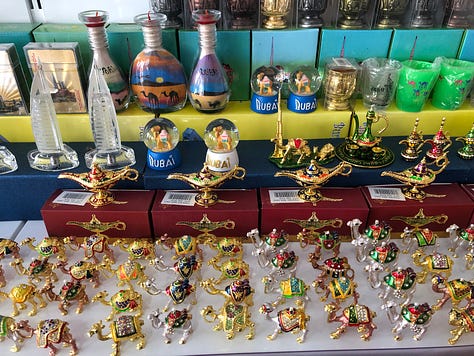
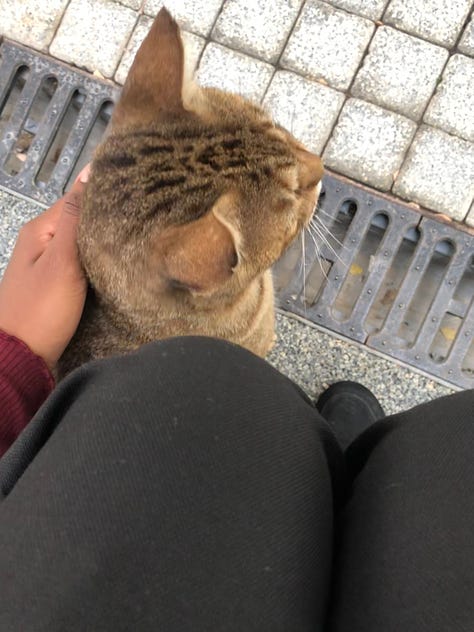

Leaving COP28 left me with several messages, but the one I am taking home is this: the Caribbean needs, especially its young people to proactively learn to love and care for our home. We must take ownership of the future we are inheriting. Looking ahead, I am creating a mini-series on the radio in partnership with my dad, aiming to educate the public on our actions that exacerbate the climate crisis. My goal is to empower everyone with ideas on what they can do to protect our home—the land, our father, and the ocean, our mother. We must liberate ourselves from the fear ingrained in our colonial past—the fear of depending on our natural resources. Instead, we should strive to work in harmony with our environment to meet our needs.
My solution to the climate crisis has little to do with directly preventing the Earth from getting hotter. While the Earth is indeed progressively warming—an imbalance mainly caused by carbon emissions and human activity— greater danger lies in the current beliefs about what we perceive as prosperity. This involves the way we divide, exploit, hoard, harm, discriminate, and in turn, disrupt the well-being of our planet and its people. The key to our survival lies in acknowledging a global 'we,' strengthened by the uniqueness of individuals and communities. Our most significant crisis is the misconception that we are separate. In the words of Prakasaka:
That is the true prosperity.





